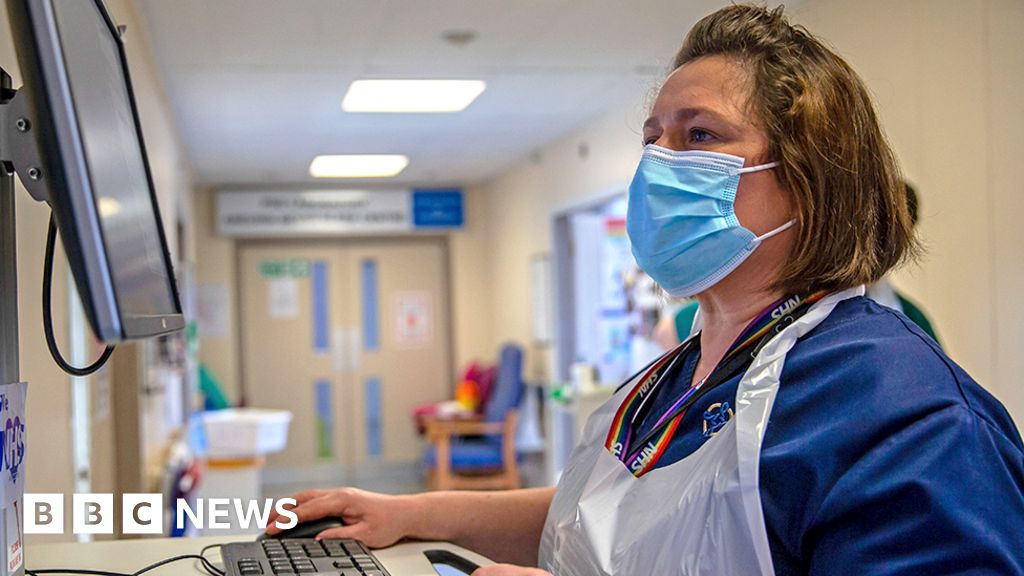- Joined
- Jul 3, 2020
- Messages
- 102
- Reaction score
- 129
As interview season is soon upon us, I started brainstorming topics and ideas to talk about in interviews. One big topic as we know that affects us in US is physician shortage.
I recently read an interesting article from the BBC on how England is trying to address its physician shortage:

 www.bbc.com
www.bbc.com
An interesting idea that caught my eye in this article is:
"A consultation on whether five-year medical degrees could be shortened by a year will also be launched."
It is interesting to me that England is considering shortening their medical school from 5 years to 4 years (where students already directly enter medical school from high school!).
I was thinking what if we had this approach here in the US? This might even be a good approach to tackle the huge disparity for races that are underrepresented in medicine.
From the discussions earlier this month about raced based admissions, it seems like a major reason for why URMs are underrepresented is because of the lack of resources (mainly money and time) to apply to medical schools (such as not having the time to pursue activities such as research and volunteering and instead work to support themselves).
If high schoolers were to be directly admitted to medical school, less money and time would be necessary to be invested to prepare and apply to medical school (save a lot of money and time used to complete a bachelor's degree). This could be a huge benefit to URMs. We could simultaneously make it easier for URM students to apply to medical school and address the physician shortage and the URM gap.
Queen's university in Canada has something like this in place (2 years of undergraduate study + 4 years of medical school combined, similar to a BS/MD combined degree which totals to 6 years total straight after high school) for Black and Indigenous Canadian high schoolers.
What are your thoughts? Are there any points I did not consider and would be a recipe for a disaster in the longer run?
Would love to listen to everyone's perspectives on this and any other way to address the physician shortage!
Edit: It is not my intention to make this about race-based admissions. Please keep this at a minimum since that topic has been addressed already. I am more interested in addressing physician shortages and comparing it to what other countries have done/are doing that we may learn from and implement.
I recently read an interesting article from the BBC on how England is trying to address its physician shortage:

Ministers set out plan to train and keep more NHS staff
The government says measures including shorter medical degrees will help plug gaps in the workforce.
An interesting idea that caught my eye in this article is:
"A consultation on whether five-year medical degrees could be shortened by a year will also be launched."
It is interesting to me that England is considering shortening their medical school from 5 years to 4 years (where students already directly enter medical school from high school!).
I was thinking what if we had this approach here in the US? This might even be a good approach to tackle the huge disparity for races that are underrepresented in medicine.
From the discussions earlier this month about raced based admissions, it seems like a major reason for why URMs are underrepresented is because of the lack of resources (mainly money and time) to apply to medical schools (such as not having the time to pursue activities such as research and volunteering and instead work to support themselves).
If high schoolers were to be directly admitted to medical school, less money and time would be necessary to be invested to prepare and apply to medical school (save a lot of money and time used to complete a bachelor's degree). This could be a huge benefit to URMs. We could simultaneously make it easier for URM students to apply to medical school and address the physician shortage and the URM gap.
Queen's university in Canada has something like this in place (2 years of undergraduate study + 4 years of medical school combined, similar to a BS/MD combined degree which totals to 6 years total straight after high school) for Black and Indigenous Canadian high schoolers.
What are your thoughts? Are there any points I did not consider and would be a recipe for a disaster in the longer run?
Would love to listen to everyone's perspectives on this and any other way to address the physician shortage!
Edit: It is not my intention to make this about race-based admissions. Please keep this at a minimum since that topic has been addressed already. I am more interested in addressing physician shortages and comparing it to what other countries have done/are doing that we may learn from and implement.
Last edited:

